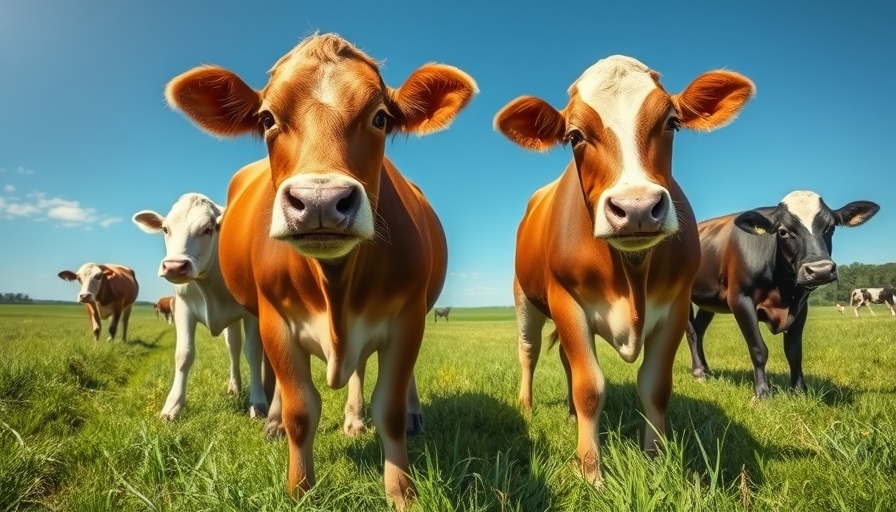
Understanding the Impact of Cattle Genetics on Greenhouse Gas Emissions
The global cattle industry stands at a crossroads, balancing the need for sustainable food production with the pressing issue of greenhouse gas (GHG) emissions. Beef and dairy farming considerably contribute to GHG emissions, particularly in low- and middle-income countries (LMICs), where cattle ownership is prevalent. A recent analysis published by the American Society of Animal Science highlights the potential of genetic improvement technologies to alter this trajectory, offering a pathway to significantly reduce global livestock emissions.
Why Genetic Improvement Matters
In countries such as India, Brazil, and parts of Africa, optimizing the genetic potential of cattle could lead to a reduction of up to 65% in livestock emissions by 2050. Genetic selection and innovations like artificial insemination (AI) have already begun to shape production efficacy, but more widespread adoption is needed. Technologies that enable precise genetic alterations, such as genomic editing, can play a vital role in this transformation.
Transformative Technologies on the Horizon
Current technologies leverage genotyping to select cattle with advantageous traits like superior milk production. Moreover, AI combined with sexed semen allows breeders to generate female calves preferentially, increasing overall productivity. The integration of beef genetics into dairy herds could create calves that contribute to less GHG emissions per unit of beef produced, bridging productivity between these two sectors.
The Future is Genomic
As we look forward, gene editing technologies pave the way for significant shifts in the cattle industry, giving rise to phenotypes that exhibit traits such as disease resistance and heat tolerance. Implementing these genomic advancements depends heavily on regulatory frameworks and public acceptance, but the potential benefits are substantial in combating climate change.
Actionable Insights for a Sustainable Future
Veterinarians and cattle producers alike must consider the implications of these genetic technologies. By embracing genetic improvements and integrating them into everyday practices, the livestock sector can significantly diminish its carbon footprint while enhancing food security. Engaging with this new science is not just about increased profitability; it's about contributing to a more sustainable world.
 Add Row
Add Row  Add
Add 

 Add Row
Add Row  Add Element
Add Element 




Write A Comment